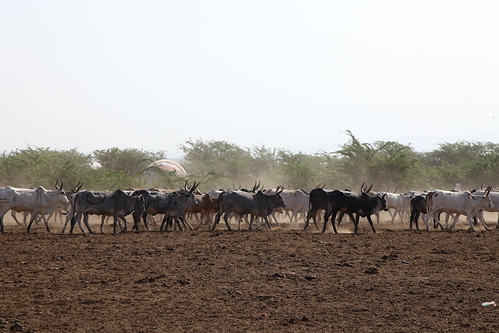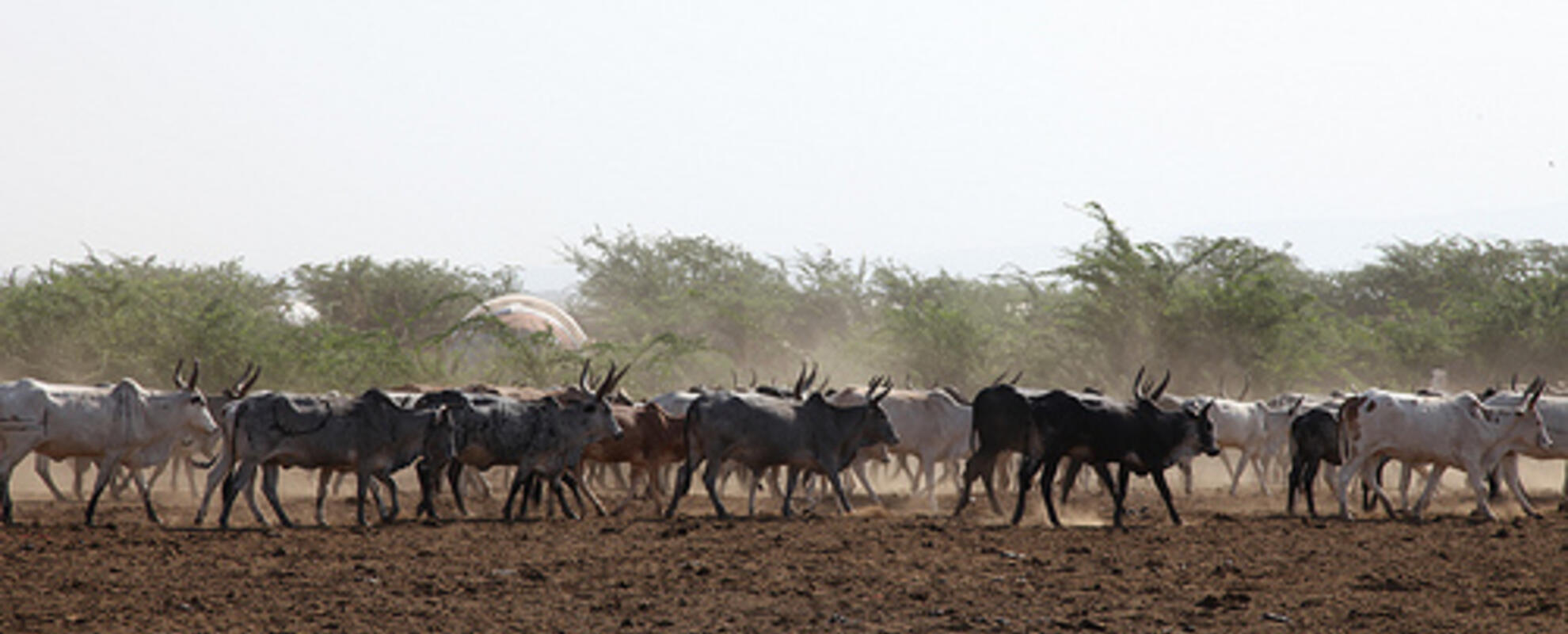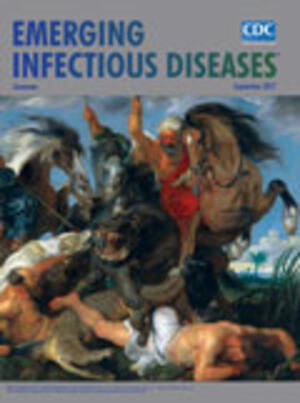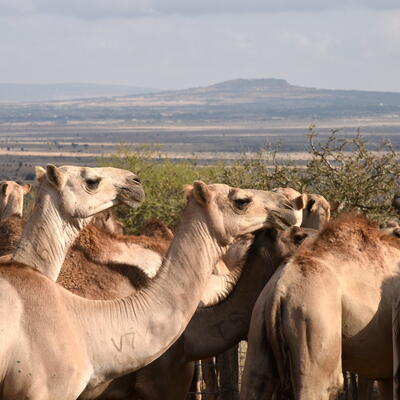
Climate change and infectious livestock diseases: The case of Rift Valley fever and tick-borne diseases

Cattle going to the grazing field in Afar region, Ethiopia (photo credit: ILRI/Apollo Habtamu).
Climate change influences the occurrence and transmission of a wide range of livestock diseases through multiple pathways. Diseases caused by pathogens that spent part of their life cycle outside the host (for instance, in vectors or the environment) are more sensitive in this regard, compared to those caused by obligate pathogens.
A newly published book, The Climate-Smart Agriculture Papers, brings together some of the latest research by agricultural scientists on climate-smart agriculture in eastern and southern Africa. The 25 chapters of the book highlight ongoing efforts to better characterize climate risks, develop and disseminate climate-smart varieties and farm management practices, and integrate these technologies into well-functioning value chains.
In a chapter on climate change and livestock diseases, scientists from the International Livestock Research Institute (ILRI) use two well-studied vector-borne diseases—Rift Valley fever and tick-borne diseases—as case studies to describe direct pathways through which climate change influences infectious disease-risk in East and southern Africa.
Access the chapter, Climate change and infectious livestock diseases: The case of Rift Valley fever and tick-borne diseases by Bernard Bett, Johanna Lindahl and Delia Grace.





















